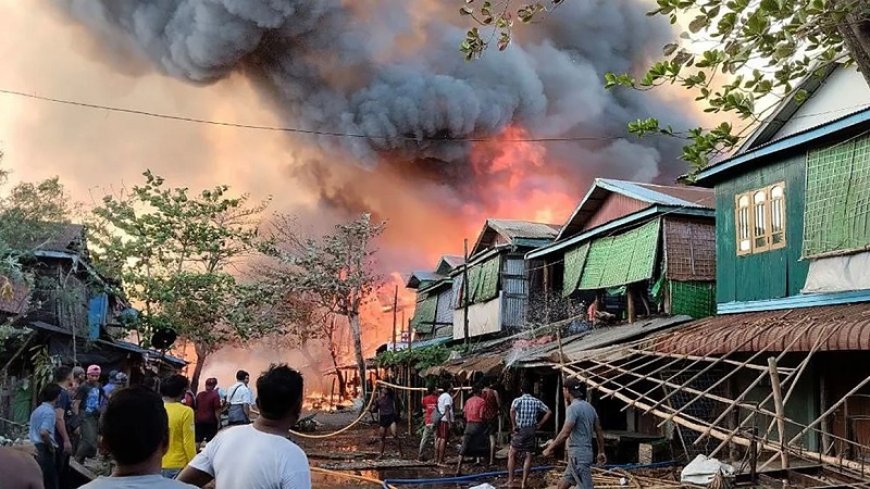New phase of Myanmar army attacks on Rohingya Muslims
The Myanmar military has destroyed a Muslim village in Rakhine state in a new round of crimes and atrocities committed by Buddhists against Muslims.

The Myanmar military has destroyed a Muslim village in Rakhine state in a new round of crimes and atrocities committed by Buddhists against Muslims.
Reports say that at least 41 people have been killed and 52 others injured in a bomb attack on the village of Kyauk Ni Maw, located south of Ramree Island, which is inhabited mostly by Muslims from the Rohingya and Kayan ethnic groups in Rakhine State.
According to witnesses in Rakhine State, the bombing also destroyed 500 to 600 wooden houses, and people trying to help the wounded were afraid to enter the area for fear of further attacks by Myanmar military aircraft.
For more than a decade now, Buddhist extremists and the Myanmar military have been committing crimes against Rohingya Muslims, especially in Rakhine State. The most important goal of these crimes is to turn Rohingya settlements and farms into scorched earth and then seize them. In fact, Buddhist extremists and the military are trying to seize people's property and possessions by evicting them from their homes and farms.

The justification given for the crime of killing and expelling Rohingya Muslims is that they are migrants who entered Myanmar from Bangladesh and must leave the country. This is despite the fact that historical evidence shows that Rohingya Muslims are not only the original inhabitants of Myanmar, especially in Rakhine State, but have also ruled the region for hundreds of years.
Considering that the land and commercial centers owned by Rohingya Muslims are of the highest quality for agriculture and trade, for more than a decade, Buddhists and hardline Myanmar military officials have been eyeing the agricultural and commercial properties and lands of the Muslim minority, and with their cooperation, they have initiated horrific crimes against Rohingya Muslims, which were inspired by the speeches of Buddhist monks. The scale and severity of their killings have been so great that the United Nations has named the Rohingya Muslims as the most persecuted minority in the world. At the same time, the investment of some Arab countries in Myanmar has also been a major factor in the expulsion of Rohingya Muslims from Rakhine State and the seizure of their lands. It is said that hundreds of Rohingya have been transferred to Saudi Arabia and employed in the most menial jobs.
Buddhist extremists and Myanmar's military had temporarily halted the killing of Rohingya Muslims due to international outcry, but now that the international community is preoccupied with issues such as the situation in West Asia and Ukraine, they have seen fit to continue their crimes in Myanmar.

In any case, what most worries the Rohingya Muslims in Myanmar and is the reason for the continued oppression against them is the government's refusal to grant them citizenship rights. The Myanmar government, which is largely in the hands of the military coup, does not recognize the Rohingya Muslims as citizens of the country, and refuses to grant them civil rights, which has a significant impact on increasing the oppression against the community. What is even more regrettable is that so far the United Nations has not been able to resolve the conflict.













































